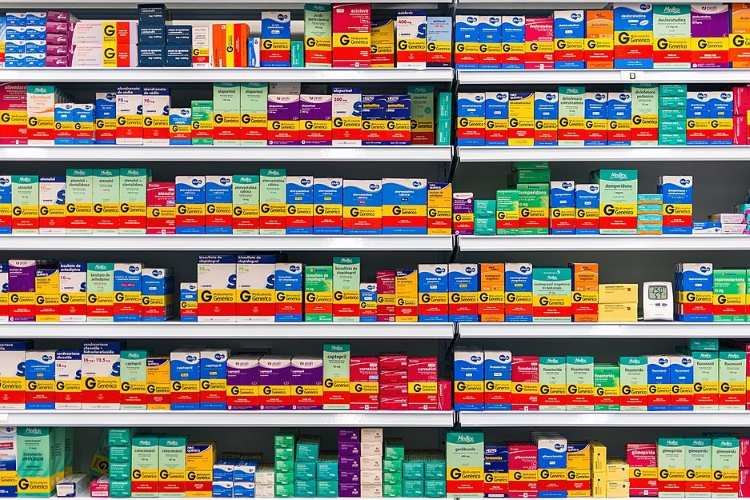
Trump tariffs hit India: The pharmaceutical industry is one of the key sectors most likely to be affected by the reciprocal tariff policy announced by US President Donald Trump. Although the Indian government and industry representatives are working to resolve trade disputes with the US and finalise a bilateral trade agreement, Trump has made it clear that India will not receive any exemptions. It is evident that this tariff policy will harm not only Indian drug manufacturers but also American pharmaceutical companies and consumers.
The exact nature of Trump’s tariff policy is still not clear. It could either be a single, fixed rate for an entire sector, or different rates for each product. In addition, there is a possibility of a “cross-sector retaliatory tariff,” which would impose a higher tariff on exports from other sectors.
According to one report, Indian products imported by the US have almost zero tariffs, whereas US products exported to India face an average tariff of 10.9%. Therefore, if a fixed rate is implemented, Indian pharmaceutical exporters would face a 10.9% tariff, as stated in a report by the Global Trade Research Initiative. However, if a cross-sector retaliatory measure is adopted, this rate would be even higher than 10.9%. All this indicates that we will have to wait to see how Trump’s tariff policy will be implemented.
READ I India’s seafood exports at risk as US closes doors
Trump tariffs and Indian generic drugs
Indian companies market affordable and high-quality drugs in place of the expensive medicines from large multinational companies in most developing countries. Most organisations that strive to provide low-cost medicines to developing nations, such as the World Health Organisation (WHO), UNICEF, Médecins Sans Frontières (MSF), and the International Dispensary Association (IDA), purchase their drugs from Indian companies. UNICEF depends on Indian companies for 50% of the medicines it distributes, and the IDA relies on them for 80% of its drugs.
Indian pharmaceutical companies gained global recognition by making affordable medicines for AIDS, a disease that had become a threat to nations worldwide. When multinational corporations began marketing AIDS medicines at exorbitant prices that were unaffordable for poor countries, Indian companies supplied them to the global market at a trivial cost compared to their multinational counterparts. While a year of treatment with drugs from multinational companies cost between $10,000 and $15,000, Indian companies provided the same medicines at an unbelievably low price of just $125 to $325, giving hope to AIDS patients.
The Clinton Foundation, Global Fund, IDA, and UNICEF, which distribute AIDS medicines to people in 87 countries globally, purchase 70% of their drugs from Indian companies. Furthermore, 89% of the medicines required for the American President’s Emergency Plan for AIDS Relief (PEPFAR) are sourced from Indian companies.
Implications for Indian and US interests
Trump has threatened a 200% tariff. This has been described by leading figures in the Indian pharmaceutical sector as “absurd and self-defeating.” Although Trump has said that this tariff will take effect within a year, it will be more detrimental to American interests than to Indian drug manufacturers. Indian generic drugs account for 90% of the prescriptions filled in America. It is estimated that Indian generic drugs have saved the US economy $1.3 trillion between 2013 and 2022. The profit in 2022 alone was $219 billion. India’s total pharmaceutical exports to the US market account for 40% (9.8 billion in the 2025 fiscal year).
A 200% tariff would excessively increase the price of Indian generic drugs and push them out of the US market. This would negatively impact not only the drug companies that supply low-cost generic drugs to America but also US pharmaceutical consumers. The US lacks the infrastructure to produce low-cost generic drugs on a large scale. If Indian drugs are forced out, the American public will have to rely on expensive patented products. This would cause the treatment costs for the average American to increase further, who already has the highest out-of-pocket health expenditure in the world.
From a long-term perspective, the Indian pharmaceutical sector hopes that this situation may help reduce its overdependence on the US market. To counter the American threat and mitigate future risks, strategies for establishing more geographically distributed generic drug distribution centres in other countries will need to be devised.
Dr B Ekbal is a public health activist, a neurosurgeon, and an academic in Kerala. He is a former member of the Kerala State Planning Board.
